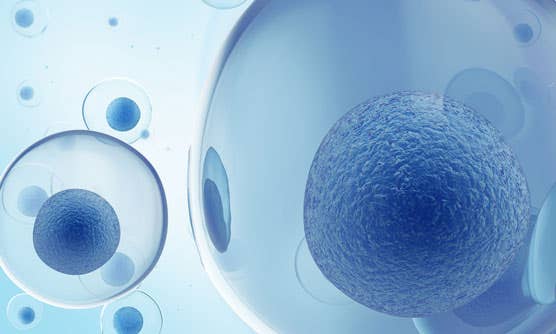Pregnancy transforms the brain more than you think
During pregnancy, the body isn’t the only thing going through big changes—your brain does, too.

Pregnancy rewires a woman’s brain, reducing and later restoring gray matter in ways that support bonding and mental health. (CREDIT: Adobe Stock)
During pregnancy, the body isn’t the only thing going through big changes—your brain does, too. For years, scientists knew the brain changed in motherhood, but only recently have they uncovered just how deep and specific those changes go. Thanks to advanced brain scans and careful tracking over time, researchers are now unlocking a new view of the maternal brain.
A groundbreaking study led by a team of scientists from the Autonomous University of Barcelona examined how a woman’s brain shifts before, during, and after her first pregnancy. Using MRI scans, they followed over 100 women who were trying to become mothers. They even included a special group—women whose partners were pregnant but who weren’t pregnant themselves—to compare and separate the effects of pregnancy from the broader experience of becoming a parent.
The findings reveal a fascinating journey that your brain takes on the path to motherhood. One of the most striking discoveries? The volume of gray matter—critical for thinking, memory, and emotions—actually shrinks during late pregnancy. Then it partially bounces back in the months after birth. But this isn’t damage. It’s part of a natural and important process tied to hormones and mental health.
The Brain’s U-Turn: Shrinkage and Recovery
During the second and third trimesters, researchers saw a dip in gray matter volume across most of the brain—nearly 5%. This reduction affected 94% of the total gray matter. The regions most affected were those involved in social cognition—how people understand and react to others. These areas belong to what scientists call the Default Mode and Frontoparietal Networks.
“The U-shaped trajectory in gray matter is unique to women who are pregnant,” researchers noted. The U-shape refers to the dip and rise in gray matter over time. Women who were not pregnant but were experiencing parenthood did not show these brain changes. This pointed clearly to a biological process tied to pregnancy itself—not just the emotional experience of becoming a mom.
What drives these brain changes? Hormones play a huge role. During pregnancy, two types of estrogen—estriol-3-sulfate and estrone-sulfate—skyrocket. Then, after birth, they drop back down. The bigger the rise and fall in these hormone levels, the more dramatic the brain’s U-shaped change in gray matter.
Hormones Reshape the Brain
Hormones are messengers. They tell your body—and your brain—what to do. During pregnancy, estrogen levels don’t just increase; they surge. Researchers found that the larger the hormone spike, the greater the shrinkage in gray matter. After delivery, as estrogen levels return to normal, the brain begins to regain volume.
Related Stories
These patterns were only seen in pregnant women. That makes it clear: this isn’t just about lifestyle or the stress of new motherhood. It’s biology. Your brain is literally rewiring itself to help you take on your new role.
These changes might help new mothers become more sensitive to their baby’s needs. It’s a process that could support emotional bonding and care. As researcher Camila Servin-Barthet explained, “The dynamic trajectory in the brain is significantly linked to the steroid hormone fluctuations inherent to pregnancy.”
Brain Changes Strengthen Bonds
Brain changes aren’t just internal. They affect how you feel and act. One of the most powerful findings in this study came months after childbirth. At the six-month mark, mothers who showed more brain volume recovery also reported feeling a stronger connection with their baby.
This means that how your brain heals after pregnancy can influence how bonded you feel with your infant. And there’s more—your mental health plays a big part in this, too. Mothers with better emotional well-being during this period showed an even stronger link between brain recovery and baby bonding.
“Maternal well-being is a key factor,” the researchers stated. It doesn’t just help mothers feel better—it helps the brain bounce back, which in turn can help deepen emotional ties with the baby.
A Rare Look Inside the Maternal Brain
This study stands out not only because of its results but also because of how it was done. It’s the first to use neuroimaging over a long period—starting before conception and going through pregnancy and into early motherhood.
In total, 179 women participated. By scanning their brains several times and measuring hormone levels, scientists were able to map changes more precisely than ever before. They also made sure to include a carefully chosen control group of non-pregnant mothers. This allowed them to clearly isolate pregnancy’s biological impact from other parenting effects.
This level of detail matters. Until now, most brain research on pregnancy came from small or cross-sectional studies. This new work shows the importance of viewing pregnancy as a time of intense and meaningful brain plasticity—the ability to change and adapt.
This plasticity doesn’t mean the brain is fragile. It means it’s flexible and responsive. Like muscles grow and strengthen with use, the brain reorganizes itself in preparation for motherhood.
A Path to Future Health Insights
The study offers more than answers—it opens doors. By understanding the normal path of brain changes in pregnancy, researchers can better spot when things go off track. That includes conditions like postpartum depression, which affects many new mothers.
Now that scientists have a “map” of healthy brain changes, they can compare it to what happens in clinical cases. This could lead to better treatments and earlier help for those struggling after childbirth.
Supported by a nearly €1 million grant from the “la Caixa” Foundation, the research sets a strong base for future work. Researchers hope to explore even more brain functions using different types of scans and to include women with more diverse experiences and backgrounds.
“This study sheds light on the complex interplay between hormones, brain development, and behavior during the transition to motherhood,” said the lead team. And that light may soon help millions of women better understand what’s happening in their brains—and why it matters.
Summary Findings
Motherhood changes your body. But more than anything, it changes your brain. From the deep dip in gray matter to the careful climb back up, your brain is hard at work preparing you for one of life’s biggest transformations.
These changes aren’t just side effects—they’re essential. They help shape how you connect, respond, and grow alongside your child. And thanks to research like this, we’re beginning to understand just how powerful—and natural—these brain shifts are.
Note: The article above provided above by The Brighter Side of News.
Like these kind of feel good stories? Get The Brighter Side of News' newsletter.



